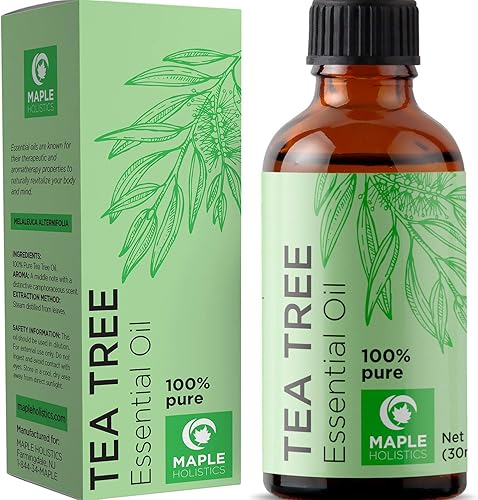Bacterial dermatitis treatment
The use of drugs to treat skin inflammation.
Aside from self-care The doctor may advise patients to take any of the following drugs together.
- Hydrocortisone drugs Is an ointment or ointment that may help treat mild skin infections But for patients with severe symptoms May only use medicines prescribed by a doctor.
- Use anti-inflammatory drugs or itching products at pharmacies, such as hydrocortisone creams. That may help temporarily relieve inflammation and itching of the skin
- Antihistamines, such as diphenhydramine (Diphenhydramine), which may help relieve allergies and severe itching. Available at general pharmacies But should choose carefully Because some antihistamines may cause drowsiness
- Corticosteroids (Corticosteroids) are both creams and ointments. Or eating To relieve swelling and itching The doctor may prescribe this type of medication if other methods of treatment do not work.
- Light therapy Is the use of ultraviolet rays to treat skin rashes Often used to treat patients with severe skin disease
- Immunization With oral medication And cream for applying It is a drug that helps cope with skin inflammation and reduces the immune system response. Which causes itching and redness on the skin Use when other types of treatments do not work. But should only be used for a short time and should not be used for children under 2 years of age
- Consider antibiotics for treating skin infections from scratching to the occurrence of infected wounds.
- Intense moisturizer The doctor may prescribe a special moisturizer. To help increase moisture and nourish skin health
- Sometimes, doctors may also recommend placing a cold compress on your skin before applying corticosteroid cream. So the drug can penetrate the skin more easily as well
Physical to treat skin inflammation
Treatment for this condition will focus on prevention and relief of itching. Since dermatitis results in dry and itchy skin when scratching a lot, it may cause ulcers and lead to skin infections. Initially able to increase moisture and relieve inflammation of the skin on their own as follows.
- Use a wet, cold compress pad To help reduce sore or irritated skin
- Avoid rubbing or scratching the itching area. Patients should wear clothing that can cover the itchy area. To prevent abrasions from strong scratching Should also cut nails and wear gloves while sleeping
- Wear clothes made of cotton. Because the soft smooth surface of cotton helps to prevent irritation of the skin at the inflamed area.
- Choose gentle and odorless laundry products. Prevents irritation of the skin when in contact with fabrics containing concentrated chemicals. Also, avoid soap and any detergent that may cause skin irritation.
- Add moisture to your skin regularly with moisturizers that are creams or ointments containing oil. To create a layer to prevent moisture loss Reduce the severity of allergic rashes For those with mild symptoms, moisturizing may still be used as a primary treatment.
- Avoid allergens Especially patients with allergic rash that should protect their skin from exposure to substances that cause especially irritating rashes.
- Take a chlorine bath using ½ cup (about 120 milliliters) of chlorine powder mixed with 150 liters of warm water in the bathtub. This method may help reduce bacteria on the skin of patients with severe skin infections caused by skin allergies.
- Know how to manage stress, such as finding activities to relax. Or exercise Because stress may be one of the factors of the occurrence of certain skin types.
Complications of dermatitis
Severe itching from dermatitis may interfere with sleep. Not getting enough rest Until resulting in feeling sleepy or tired during the day In addition, skin inflammation may also cause open wounds. Which has a risk of bacterial infections, viral infections and subsequent fungal infections
However, patients with skin allergies, the most common type of dermatitis Is a group that often finds Staphylococcus bacteria (Staphylococcus) and streptococcus bacteria (Streptococcus), which has many people infected with these bacteria that make the symptoms worse. Including infections with the herpes virus that can infiltrate through the damaged skin Which may cause blisters and become sores followed by infection with fever, fatigue and discomfort
In society, dermatitis can cause both children and adults who are not confident in themselves. Children with obvious skin rashes may be teased or disgusted by friends. Ploy causes psychological effects such as becoming a quiet child and separating from friends etc.
Prevention of dermatitis
Nourishing and caring for the skin to not be too dry may be one factor that can help prevent dermatitis. By reducing the dryness of the skin should be done after taking a bath while the skin is still moist.
- Reduce the time needed for bathing to be shortened only 5-10 minutes at a time and should be showered with ordinary water. Or using the oil mixed in the bathtub may also help.
- Use soap or shower gel that is gentle on the skin. Choose to use baby soap or odorless soap. Because soap containing chemicals may result in even more dry skin
- Dry your body gently after showering. May wipe with a towel that is soft and gentle on the skin.
- Apply cream or oil to maintain skin's moisture after bathing. By experimenting with many products to find the type that is most suitable for your skin Choose safe and effective, odorless and at a price that can be bought.
100% Pure Tea Tree Oil Natural Essential Oil with Antifungal Antibacterial Benefits for Face Skin Hair Nails Heal Acne Psoriasis Dandruff Piercings Cuts Bug Bites Multipurpose Surface Cleaner

